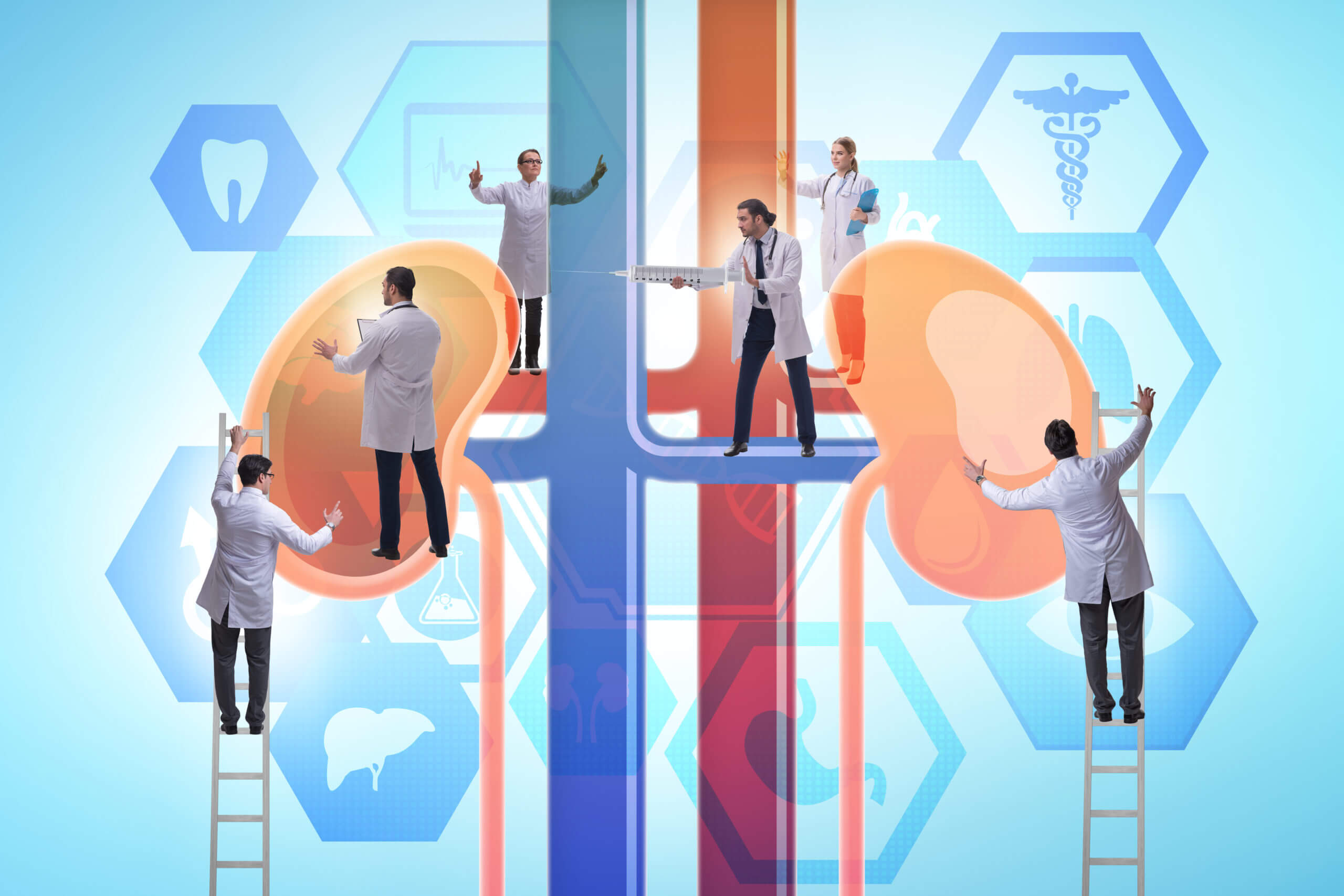General description
Chronic kidney disease, also known as chronic kidney failure, is a medical condition characterized by the gradual loss of regular kidney function. Normally, healthy kidneys filter waste and excess fluid from the blood and excreted them through urination. However, failing kidneys are unable to filter this waste adequately. As a result, waste builds up in the system. When chronic kidney disease reaches an advanced stage, fluids, electrolytes, and wastes can reach dangerous levels in the body. It is this build-up of body waste that causes a range of symptoms and long-term complications.
Signs, symptoms, and long-term complications
Chronic kidney disease can be hard to detect in the early stages. Patients may have few to no symptoms. Additionally, many signs of chronic kidney disease are similar to those of other conditions, making it difficult to diagnose initially. However, as the disease progresses, more symptoms of kidney disease become definitive. The symptoms of chronic kidney disease may include:
- Nausea
- Vomiting
- Loss of appetite
- Fatigue and weakness
- Trouble sleeping
- Change in the amount of urine
- Decreased mental agility
- Muscle spasms and cramps
- Swelling of the feet and ankles
- Frequent itching
- Chest pain
- Shortness of breath
- High blood pressure (hypertension)
Unfortunately, patients with chronic kidney disease are prone to the long-term effect of the disease. Those long-term complications include:
- Fluid retention
- Increase in the blood’s potassium levels (hyperkalemia)
- Cardiovascular disease
- Increased risk of fractures
- Anemia
- Decreased libido, erectile dysfunction, reduced fertility, and pregnancy complications
- Damage to the central nervous system
- Decreased immune response
- An advanced state of chronic kidney disease called end-stage renal disease
Risk factors
Several risk factors can contribute to increasing the likelihood of a patient getting chronic kidney disease.
- Diabetes (Type 1 or Type 2)
- High blood pressure
- Inflammation of specific kidney structures (Glomerulonephritis or Interstitial nephritis)
- Polycystic kidney disease
- Prolonged obstruction of the urinary tract, caused by conditions such as an enlarged prostate, kidney stones, and some types of cancer
- Vesicoureteral reflux
- Recurrent kidney infections (pyelonephritis)
- Kidney structure abnormality
- Cardiovascular disease
In addition to the risk mentioned above, other risk factors are:
- Smoking
- Obesity
- Being African American, Native American, or Asian American
- Family history of kidney disease
- Older age
Prevention of Chronic Kidney Disease
The following may help reduce your risk of developing chronic kidney disease:
- Maintain a healthy weight
- Eat a healthy, kidney-friendly diet
- Exercise regularly
- Get a restful sleep
- Do not smoke or use tobacco products
- Follow directions on prescription and over-the-counter medications
- Consult with your doctor regularly
Treatment
Treatment of chronic kidney disease focuses on slowing the progression of kidney damage, reducing complications, and alleviating symptoms. In some cases, treating the underlying cause of the disease could improve kidney function. However, in most cases, chronic kidney disease has no cure.
Physicians may use medication to treat chronic kidney disease complications and symptoms, including high blood pressure, high cholesterol, anemia, swelling, and bone issues. A diet of certain foods can also help alleviate patients’ symptoms further.
Dialysis
Chronic kidney disease may continue to progressively damage the kidneys to the point where they can no longer clear waste from your system on their own. This complete or near-complete kidney failure is called end-stage kidney disease. End-stage kidney disease, or end-stage kidney failure, is fatal without dialysis or a kidney transplant.
Dialysis is the process of removing waste from the blood of patients whose kidneys have failed. This treatment usually takes place in a dialysis clinic: the type, frequency, and duration of dialysis treatment needed vary depending on each individual’s needs.
Conclusion
It may be time to talk to your doctor if you are experiencing any symptoms or have a condition that increases your risk for kidney disease. Your doctor may choose to monitor your blood pressure and kidney function with urine and blood tests during regular visits to detect any abnormalities. Talk to your doctor if you believe you are at risk of developing kidney disease.


